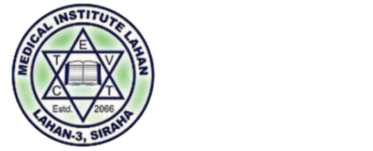Proficiency Certificate Level in Health Science (General Medicine)
General Medicine is one of the prominent and popular disciplines within the health profession in Nepal. The Health Science (general medicine) profession has been helping the world for the all-round development of health and it has also been creating salary base employment and self-employment opportunities in public and private sectors. This curriculum is designed with the purpose of producing middle level technical medical workforce equipped with knowledge and skills related to the field of general medicine so as to meet the demand of such workforce in the country to contribute in the national economic development of Nepal. The knowledge and skills incorporated in this curriculum will be helpful to deliver the individual needs as well as national needs in the field of health profession especially in general medicine sector. Nepal Government has adopted a national policy for the attainment of “Health for All beyond the Year 2000 A.D” through the use of the primary health care approach. As a result CTEVT got the mandate to produce middle level trained workforce through CTEVT as well as CTEVT affiliated institutions.
Program Description
This course is designed to meet the academic prerequisites for entry into a Bachelor’s program in Health Sciences and to equip students with the necessary skills to serve as middle-level human health workers. Graduates of this course will be prepared to independently fulfill the role of a health post assistant, as outlined by the Nepal Health Professional Council, in various healthcare institutions both within Nepal and internationally. The program spans three academic years and follows a structured curriculum. In the first year, students delve into basic sciences and foundational subjects. The second year builds on this foundation with a focus on basic medical subjects, both in theory and practical applications. The final year is dedicated to applying acquired knowledge and skills in real-world healthcare settings, such as hospitals or health posts.
The curriculum encompasses a range of subjects that contribute to both the broader medical field and the specialized health worker role. Foundational subjects like English, Nepali, Physics, Chemistry, and Mathematics are incorporated using a diffusion model of the curriculum, ensuring their relevance and application in the medical context. Disciplinary subjects related to the medical field are distributed across all three years, providing students with a comprehensive understanding of the field’s intricacies. Notably, the program also integrates project work and real-world practice in specific medical areas. This hands-on approach enhances students’ practical skills and exposes them to the challenges and intricacies of actual healthcare scenarios.
The overarching goal of this curriculum is to produce proficient and highly employable middle-level technical healthcare professionals. By meticulously structuring the curriculum and its subject-wise content, implementers are guided in the process of developing a workforce that is competent, adaptable, and well-prepared to contribute effectively to the medical domain. The curriculum’s emphasis on both theoretical knowledge and practical application ensures that graduates possess a balanced skill set. Ultimately, this course aligns with the objectives of the Nepal Health Professional Council and addresses the growing demand for skilled healthcare personnel, both nationally and internationally.
Duration:
The total duration of this curricular program is three years. The program is based on yearly
system. Moreover, one academic year consists of 40 academic weeks and one academic week
consists up to 40 hours excluding evaluation period.
Group Size:
The group size will be maximum of 40 (Forty) in a batch.
Entry Criteria:
SLC Pass or SLC with GPA 2.00 plus minimum C grade in Compulsory Mathematics,
English & Science.
Should pass entrance examination as administered by CTEVT.
. Selection:
Applicants fulfilling the entry criteria will be selected for admission on the basis of merit.
.Examination and Marking Scheme:
The subject teacher will internally assess the students’ achievement in each subject
during the course followed by a final examination at the end of each year.
A weightage of 20% for the internal assessment and 80% for the annual examination will
be allocated for theoretical components of a subject.
The final examinations of all theory part will be administered through written tests.
For theory exam, short and long questions will be asked covering all units of subjects as
far as possible.
The method of continuous assessment will be adopted for practical components. Final
practicum evaluation will be based on:
a. Institutional practicum attendance – 10%
b. Logbook/Practicum book maintenance – 10%
c. Spot performance (assigned task/practicum performance/identification/arrangement preparation/measurement) – 40%
d. Viva voce : Internal examiner – 20% External examiner – 20%
Student who fails in the internal assessment of any subject will not be allowed to sit in
the final examination of that subject.

